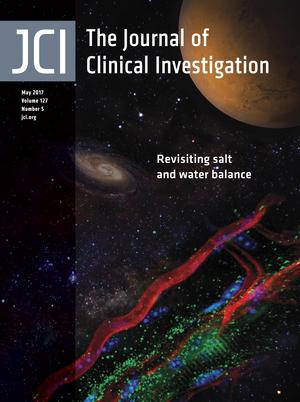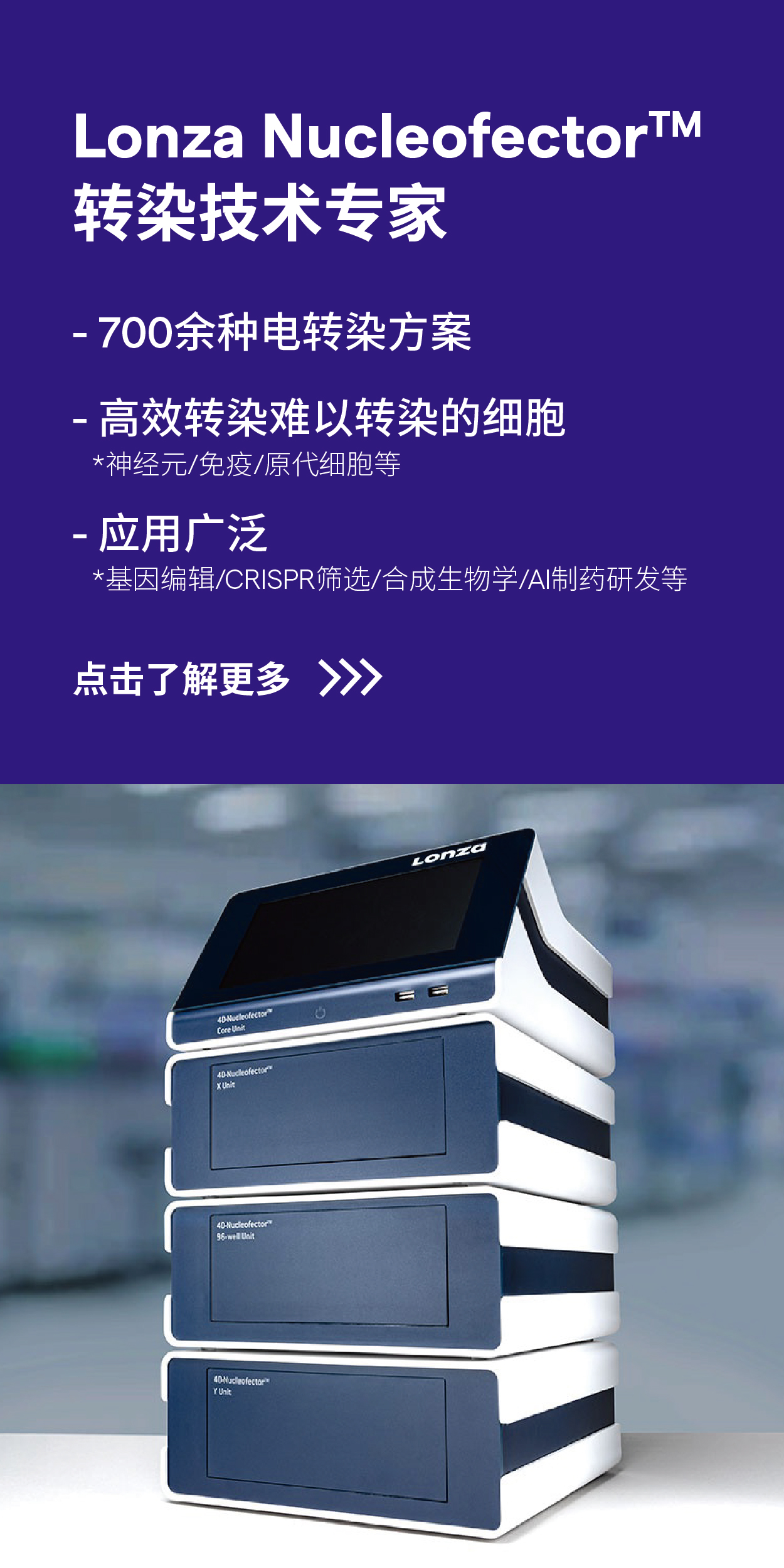- EN - English
- CN - 中文
Myeloid Progenitor Transformation Assay
髓系祖细胞转化试验
发布: 2017年12月05日第7卷第23期 DOI: 10.21769/BioProtoc.2626 浏览次数: 8584
评审: Jia LiYunyi KangAnonymous reviewer(s)
Abstract
Numerous oncogenes have been identified to cause leukemia. For example, chromosomal translocation generates various fusion genes of the mixed-lineage leukemia (MLL) gene and a partner gene in leukemia, whose gene products transform primary myeloid progenitors into an immortalized state. To characterize the transforming ability of leukemic oncogenes, researchers in the field have developed an ex vivo murine myeloid transformation assay using retroviral gene transduction and its protocol has been improved over the past 10 years. Here, we provide the detailed procedure for this assay.
Keywords: Mixed lineage leukemia (混合细胞系白血病)Background
Chromosomal translocation generates a variety of MLL fusion genes that cause leukemia (Meyer et al., 2017). The wild-type mixed lineage leukemia (MLL) protein functions as a transcriptional regulator that enhances the expression of a set of genes including homeobox (Hox) genes in hematopoietic immature progenitor cells (Jude et al., 2007). During normal hematopoiesis, Hox genes are expressed in the stem/progenitor cell fractions, but are transcriptionally down-regulated throughout differentiation (Somervaille and Cleary, 2006; Yokoyama et al., 2013); however, the MLL fusion protein constitutively up-regulates its target genes and blocks differentiation to establish an immortalized state under ex vivo culture conditions. Recently, we reported that the MLL-ENL and MLL-AF10 fusion proteins recruit AF4 to activate transcription and also recruit the DOT1L complex to maintain the transcription of the same target genes to efficiently transform hematopoietic progenitors (Okuda et al., 2017). To investigate the molecular mechanism of leukemogenesis, one can perform a myeloid progenitor transformation assay. By this assay, one can identify essential functional domains of an oncoprotein relatively easily at low cost compared to an in vivo leukemogenesis assay. In this assay, the leukemic oncogene is transduced by a retrovirus into primary murine hematopoietic progenitor cells derived from bone marrow and the transduced cells are cultured in semi-solid medium containing cytokines for the myeloid lineage (Lavau et al., 1997). Cells fully transformed by an oncogene can often be established as a cell line and cultured indefinitely ex vivo. Therefore, one can perform gene knockdown experiments of these immortalized cells by transducing an sh-RNA-carrying lentivirus. Alternatively, one can immortalize progenitors derived from a genetically engineered mouse carrying conditional knockout alleles with loxP sites, and knockout the gene of interest by activating Cre-recombinase. We have shown that the MLL fusion protein associates with various co-factors to form a functional complex. MENIN and lens epithelium-derived growth factor (LEDGF) are essential co-factors for leukemogenic activity (Yokoyama et al., 2005; Yokoyama and Cleary, 2008; Okuda et al., 2014). AF4 and ENL family proteins are the most frequent MLL-fusion partners, accounting for two-thirds of MLL-rearranged leukemia incidence (Huret et al., 2001), and form a biochemically stable complex with the SL1 complex and the P-TEFb elongation factor to activate transcription initiation and elongation (Yokoyama et al., 2010; Okuda et al., 2015; Okuda et al., 2016). MLL fusion proteins appear to activate transcription through the association with these cofactors in immortalized cells. In these previous studies, we used an sh-RNA-mediated knockdown strategy and Cre-mediated knockout strategy with MLL fusion-immortalized cells to demonstrate the importance of cofactors in leukemic transformation. Because this method allows us to generate cell lines immortalized with different oncogenes in a short period of time, the efficacy of drugs can be analyzed on various cell lines that are dependent on different oncogenes (Grembecka et al., 2012). Thus, this assay is a powerful tool for functional analysis of leukemic oncogenes and testing of drug efficacies.
Materials and Reagents
- Pipette tips
- Tissue culture 10-cm dish (Greiner Bio One International, catalog number: 664160 )
- Collagen-coated tissue culture 6-cm dishes (Corning, catalog number: 354401 )
- Terumo syringe® 10 ml (Terumo, catalog number: SS-10ESZ )
- Terumo needle 21 G x 1 ½” (Terumo, catalog number: NN-2138S )
- Pre-separation filter (Miltenyi Biotec, catalog number: 130-041-407 )
- MS column (Miltenyi Biotec, catalog number: 130-042-201 )
- 15-ml conical centrifuge tubes (Thermo Fisher Scientific, Thermo ScientificTM, catalog number: 339650 )
- Tissue culture 48-well plate (Thermo Fisher Scientific, Thermo ScientificTM, catalog number: 150687 )
- Terumo syringe® 5 ml (Terumo, catalog number: SS-05SZ )
- Millex-GV 0.45-µm PVDF 33-mm sterile syringe filter (Merck, catalog number: SLHV033RB )
- Corning® Cell Lifter (Corning, catalog number: 3008 )
- Terumo syringe® 1 ml (Terumo, catalog number: SS-01T )
- Terumo needle 18 G x 1 ½” (Terumo, catalog number: NN-1838S )
- Tissue culture 12-well plates (Thermo Fisher Scientific, Thermo ScientificTM, catalog number: 150628 )
- Bottle-top filter 0.2-µm PVDF (Corning, catalog number: 431098 )
- Five-week-old female C57BL/6JJcl mice (CLEA Japan, Tokyo, Japan)
- Platinum-E packaging (PLAT-E) cell line (Morita et al., 2000) (gifted from Dr. Toshio Kitamura, or Cell Biolabs, catalog number: RV-101 )
- WEHI-3 (ATCC, catalog number: TIB-68 )
- pMSCV-neo vector (Takara Bio, ClontechTM, catalog number: 634401 )
- LipofectamineTM 2000 transfection reagent (Thermo Fisher Scientific, InvitrogenTM, catalog number: 11668019 )
- Opti-MEMTM I medium (Thermo Fisher Scientific, InvitrogenTM, catalog number: 31985070 )
- CD117 microbeads, mouse (Miltenyi Biotec, catalog number: 130-091-224 )
- G418 solution (NACALAI TESQUE, catalog number: 16513-84 )
- Polybrene infection/transfection reagent (10 mg/ml) (Merck, catalog number: TR-1003-G )
- Beta-mercaptoethanol (NACALAI TESQUE, catalog number: 21418-84 )
- RNeasy® mini kit (QIAGEN, catalog number: 74106 )
- Superscript® III first-strand synthesis system for RT-PCR (Thermo Fisher Scientific, InvitrogenTM, catalog number: 18080051 )
- Sodium chloride (NaCl) (NACALAI TESQUE, catalog number: 31320-05 )
- Na2HPO4·12H2O (Wako Pure Chemical Industries, catalog number: 196-02835 )
- Potassium dihydrogenphosphate (KH2PO4) (Wako Pure Chemical Industries, catalog number: 164-22635 )
- Potassium chloride (KCl) (Wako Pure Chemical Industries, catalog number: 160-22115 )
- Fetal bovine serum (FBS) (NICHIREI, Sigma-Aldrich, catalog number: 172012-500ML )
- Penicillin-streptomycin-glutamine (P/S) solution (NACALAI TESQUE, catalog number: 06168-34 )
- Dulbecco’s modified Eagle medium (DMEM) (NACALAI TESQUE, catalog number: 08459-64 )
- RPMI 1640 (NACALAI TESQUE, catalog number: 30264-56 )
- Ethylenediaminetetraacetic acid (EDTA) (NACALAI TESQUE, catalog number: 15130-95 )
- Trypsin-EDTA solution (NACALAI TESQUE, catalog number: 32778-34 )
- Sodium hydroxide (NaOH) (Wako Pure Chemical Industries, catalog number: 198-13765 )
- Ammonium chloride (NH4Cl) (Wako Pure Chemical Industries, catalog number: 017-02995 )
- Potassium hydrogen carbonate (KHCO3) (Wako Pure Chemical Industries, catalog number: 166-03275 )
- Murine stem cell factor (SCF) (PeproTech, catalog number: 250-03 )
- Murine interleukin-3 (IL-3) (PeproTech, catalog number: 213-13 )
- Murine interleukin-6 (IL-6) (PeproTech, catalog number: 216-16 )
- Murine granulocyte-macrophage colony-stimulating factor (GM-CSF) (PeproTech, catalog number: 315-03 )
- Bovine serum albumin (BSA) (Wako Pure Chemical Industries, catalog number: 019-23293 )
- IMDM powder (Thermo Fisher Scientific, GibcoTM, catalog number: 12200036 )
- Sodium hydrogen carbonate (NaHCO3) (Wako Pure Chemical Industries, catalog number: 195-14515 )
- Methyl cellulose (viscosity: 4,000 cP) (Sigma-Aldrich, catalog number: M0512 )
- TaqMan® probes against murine Hoxa9 and Gapdh
Hoxa9 (Thermo Fisher Scientific, Applied BiosystemsTM, catalog number: Mm00439364_m1 )
Gapdh (Thermo Fisher Scientific, Applied BiosystemsTM, catalog number: Mm99999915_g1 ) - TaqMan® fast advanced master mix (Thermo Fisher Scientific, Applied BiosystemsTM, catalog number: 4444557 )
- 25x phosphate-buffered saline Ca2+/Mg2+-free (PBS) (see Recipes)
- D10 media (see Recipes)
- R10 media (see Recipes)
- R10W10 media (see Recipes)
- 0.5 M EDTA solution (see Recipes)
- ACK lysis buffer (see Recipes)
- SM buffer (see Recipes)
- Cytokine stocks (see Recipes)
- AC media (see Recipes)
Equipment
- 5% CO2 incubator 37 °C
- 5% CO2 incubator 32 °C
- MACS multistand (Miltenyi Biotec, catalog number: 130-042-303 )
- Pipetman P2, P20, P200, P1000
- Portable Pipet-Aid® XP pipette controller (Drummond Scientific, catalog number: 4-000-101 )
- Microscope
- Cell counter
- Autoclave
- 1-L glass bottle
- Shaker
- Surgical scissors and forceps
- Laminar flow cabinet
- Centrifuge for 15-ml conical tubes
- MiniMACS separator (Miltenyi Biotec, catalog number: 130-042-102 )
- StepOnePlusTM realtime PCR system (Thermo Fisher Scientific, Applied BiosystemsTM, model: StepOnePlusTM , catalog number: 4376600)
- General equipment for Western blotting and SDS-PAGE
Software
- GraphPad Prism (GraphPad Software, La Jolla, CA, USA)
Procedure
文章信息
版权信息
© 2017 The Authors; exclusive licensee Bio-protocol LLC.
如何引用
Okuda, H. and Yokoyama, A. (2017). Myeloid Progenitor Transformation Assay. Bio-protocol 7(23): e2626. DOI: 10.21769/BioProtoc.2626.
分类
癌症生物学 > 无限复制 > 细胞生物学试验 > 蛋白质
癌症生物学 > 癌症干细胞 > 肿瘤形成 > 自我更新
细胞生物学 > 基于细胞的分析方法 > 集落形成
您对这篇实验方法有问题吗?
在此处发布您的问题,我们将邀请本文作者来回答。同时,我们会将您的问题发布到Bio-protocol Exchange,以便寻求社区成员的帮助。
Share
Bluesky
X
Copy link













